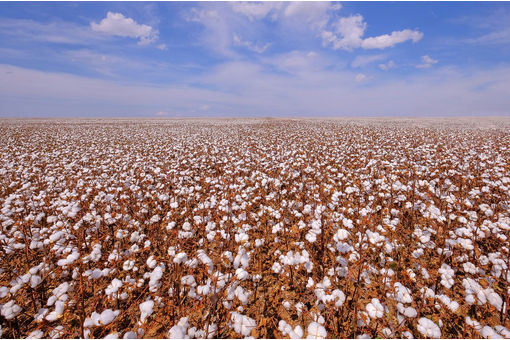Interviews
Pak central bank flags country's ailing textile sector
30 Jun '16
3 min read
The State Bank of Pakistan (SBP) has warned that if the country's textile sector worsens further, it would have dire consequences for the stability of banks due to their huge exposure in the industry.
The Pakistani central bank's Financial Stability Review said that the textile sector's infection ratio is also at an elevated level.
The review pointed out that exposure of nine banks in the textile industry is more than 100 per cent of their equity, while that of 13 banks is more than 50 per cent of their equity.
“Considering entity-wise high concentration, a few defaults can quickly erode the equity of exposed banks and threaten the stability of the banking sector,” the SBP report said.
The gross non-performing loans of the textile sector stood at a high 29 per cent on September 2015, with most of the bad debts were placed in the loss category.
The link between the textile and banking sectors entails some risks to the financial stability, said the report. Moreover, banks' exposure in textiles is concentrated to a few large entities.
“The outstanding loan disbursement against top-20 companies stands at Rs126 billion. In terms of banks, the exposure to textiles is quite dispersed as 29 of 35 banks are directly serving the industry,” it said.
In addition to sluggish global demand, the prime bottleneck hindering the textile sector's growth appears to be inadequate and expensive energy supply. The use of alternative methods (furnace oil, self-generation of power, etc) may be feasible for a few blue-chips companies in the short term, but may not be appropriate for majority of the firms.
Prices of textile products on the international markets have plummeted in the recent past. The international cotton price index fell by 24 per cent from 90.09 US cents per pound in September 2013 to 68.74 cents per pound in September 2015. The decline was even higher (62 per cent) when compared to the January 2011 level.
“Sluggish global demand due to consistent recessionary phase in the euro zone and slowdown in China is one of the major reasons for the decline in international prices,” the report said.
According to the report, the performance of the textile sector will also depend upon other important factors, including stability of the exchange rate, international and local regulations, political stability and law and order condition in the country.
It also pointed out that the preferential access to the European markets under the Generalised Scheme of Preferences Plus (GSP+) status is subject to fulfilment of various conditions. In case the status is withdrawn due to failing of one or a few conditions, it may negatively impact the textile sector exports, the SBP warned. (SH)
The Pakistani central bank's Financial Stability Review said that the textile sector's infection ratio is also at an elevated level.
The review pointed out that exposure of nine banks in the textile industry is more than 100 per cent of their equity, while that of 13 banks is more than 50 per cent of their equity.
“Considering entity-wise high concentration, a few defaults can quickly erode the equity of exposed banks and threaten the stability of the banking sector,” the SBP report said.
The gross non-performing loans of the textile sector stood at a high 29 per cent on September 2015, with most of the bad debts were placed in the loss category.
The link between the textile and banking sectors entails some risks to the financial stability, said the report. Moreover, banks' exposure in textiles is concentrated to a few large entities.
“The outstanding loan disbursement against top-20 companies stands at Rs126 billion. In terms of banks, the exposure to textiles is quite dispersed as 29 of 35 banks are directly serving the industry,” it said.
In addition to sluggish global demand, the prime bottleneck hindering the textile sector's growth appears to be inadequate and expensive energy supply. The use of alternative methods (furnace oil, self-generation of power, etc) may be feasible for a few blue-chips companies in the short term, but may not be appropriate for majority of the firms.
Prices of textile products on the international markets have plummeted in the recent past. The international cotton price index fell by 24 per cent from 90.09 US cents per pound in September 2013 to 68.74 cents per pound in September 2015. The decline was even higher (62 per cent) when compared to the January 2011 level.
“Sluggish global demand due to consistent recessionary phase in the euro zone and slowdown in China is one of the major reasons for the decline in international prices,” the report said.
According to the report, the performance of the textile sector will also depend upon other important factors, including stability of the exchange rate, international and local regulations, political stability and law and order condition in the country.
It also pointed out that the preferential access to the European markets under the Generalised Scheme of Preferences Plus (GSP+) status is subject to fulfilment of various conditions. In case the status is withdrawn due to failing of one or a few conditions, it may negatively impact the textile sector exports, the SBP warned. (SH)
Fibre2Fashion News Desk – India
Popular News
Leave your Comments
Editor’s Pick
































-Ltd..jpg?tr=w-120,h-60,c-at_max,cm-pad_resize,bg-ffffff)





.jpg?tr=w-120,h-60,c-at_max,cm-pad_resize,bg-ffffff)
.jpg?tr=w-120,h-60,c-at_max,cm-pad_resize,bg-ffffff)






